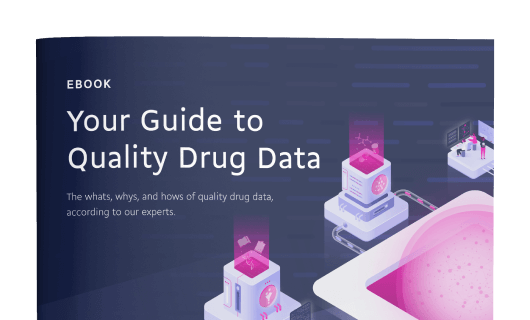Explore a selection of our essential drug information below, or:
Identification
- Generic Name
- Adipose-Derived Mesenchymal Stem Cells: Autologous or Allogeneic Origins
- DrugBank Accession Number
- DB15729
- Background
Adipose mesenchymal stem cells (AMSCs) are MSCs derived from adipose tissue, which is more accessible and less painful than stem cells extracted from most other sources. Autologous stem cells are those derived from a patient’s own cells while allogeneic stem cells are derived from that of a donor. Lipoaspiration, also known as liposuction, is a possible method for extraction. This is followed by purification and expansion of the cells in vitro.
These AMSCs are multipotent, with the capability of forming different tissues, some of which include bone, muscle, neural, and chondrocyte. This explains why AMSCs have been utilized in repairing craniofacial bone defects. They also have potential in treatment of scarred vocal folds.
- Type
- Biotech
- Groups
- Investigational
- Biologic Classification
- Cell transplant therapies
Autologous cell transplant / Other cell transplant therapies - Synonyms
- adMSC
- AstroStem-V
- CMTAd
- HB-adMSCs
- HCR040
- PSC-04
Pharmacology
- Indication
Not Available
 Reduce drug development failure ratesBuild, train, & validate machine-learning modelswith evidence-based and structured datasets.Build, train, & validate predictive machine-learning models with structured datasets.
Reduce drug development failure ratesBuild, train, & validate machine-learning modelswith evidence-based and structured datasets.Build, train, & validate predictive machine-learning models with structured datasets.- Contraindications & Blackbox Warnings
 Prevent Adverse Drug Events TodayTap into our Clinical API for life-saving information on contraindications & blackbox warnings, population restrictions, harmful risks, & more.Avoid life-threatening adverse drug events with our Clinical API
Prevent Adverse Drug Events TodayTap into our Clinical API for life-saving information on contraindications & blackbox warnings, population restrictions, harmful risks, & more.Avoid life-threatening adverse drug events with our Clinical API- Pharmacodynamics
Not Available
- Mechanism of action
AMSCs have been shown to secrete several growth factors and hyaluronic acid (HA) which balance collagen, with hepatocyte growth factor (HGF) being a major part of those secreted. HGF secreted by AMSCs has been shown, in culture, to attenuate collagen production and fibroblast proliferation. AMSCs also have the ability to produce elastic fibers, something that typically does not appear in a scar environment.
In some studies, adipose mesenchymal stem cells have demonstrated anti-inflammatory and chondroprotective properties. Currently, the exact mechanism behind AMSCs is unknown. However, a possible mechanism consists of activation of the cells due to inflammation, with the activated cells then modulating inflammation and cartilage remodeling by prostaglandin E2. The effects for AMSCs seem to also possibly be dose-dependent.
- Absorption
Not Available
- Volume of distribution
Not Available
- Protein binding
Not Available
- Metabolism
- Not Available
- Route of elimination
Not Available
- Half-life
Not Available
- Clearance
Not Available
- Adverse Effects
 Improve decision support & research outcomesWith structured adverse effects data, including: blackbox warnings, adverse reactions, warning & precautions, & incidence rates. View sample adverse effects data in our new Data Library!Improve decision support & research outcomes with our structured adverse effects data.
Improve decision support & research outcomesWith structured adverse effects data, including: blackbox warnings, adverse reactions, warning & precautions, & incidence rates. View sample adverse effects data in our new Data Library!Improve decision support & research outcomes with our structured adverse effects data.- Toxicity
Not Available
- Pathways
- Not Available
- Pharmacogenomic Effects/ADRs
- Not Available
Interactions
- Drug Interactions
- This information should not be interpreted without the help of a healthcare provider. If you believe you are experiencing an interaction, contact a healthcare provider immediately. The absence of an interaction does not necessarily mean no interactions exist.Not Available
- Food Interactions
- Not Available
Categories
- Drug Categories
- Not Available
- Classification
- Not classified
- Affected organisms
- Not Available
Chemical Identifiers
- UNII
- 3ME9TTI5QB
- CAS number
- Not Available
References
- General References
- Mazini L, Rochette L, Amine M, Malka G: Regenerative Capacity of Adipose Derived Stem Cells (ADSCs), Comparison with Mesenchymal Stem Cells (MSCs). Int J Mol Sci. 2019 May 22;20(10). pii: ijms20102523. doi: 10.3390/ijms20102523. [Article]
- Zakrzewski W, Dobrzynski M, Szymonowicz M, Rybak Z: Stem cells: past, present, and future. Stem Cell Res Ther. 2019 Feb 26;10(1):68. doi: 10.1186/s13287-019-1165-5. [Article]
- External Links
- Not Available
Clinical Trials
- Clinical Trials
Clinical Trial & Rare Diseases Add-on Data Package
Explore 4,000+ rare diseases, orphan drugs & condition pairs, clinical trial why stopped data, & more. Preview package Phase Status Purpose Conditions Count Start Date Why Stopped 100+ additional columns Unlock 175K+ rows when you subscribe.View sample data2 Completed Prevention Coronavirus Disease 2019 (COVID‑19) 2 somestatus stop reason just information to hide 2 Completed Treatment Coronavirus Disease 2019 (COVID‑19) / Post COVID-19 Syndrome 1 somestatus stop reason just information to hide 2 Completed Treatment Multiple Sclerosis 1 somestatus stop reason just information to hide 2 Completed Treatment Parkinson's Disease (PD) 1 somestatus stop reason just information to hide 2 Recruiting Treatment Parkinson's Disease (PD) 1 somestatus stop reason just information to hide
Pharmacoeconomics
- Manufacturers
- Not Available
- Packagers
- Not Available
- Dosage Forms
- Not Available
- Prices
- Not Available
- Patents
- Not Available
Properties
- State
- Not Available
- Experimental Properties
- Not Available
Drug created at August 11, 2020 19:09 / Updated at June 30, 2023 06:40

